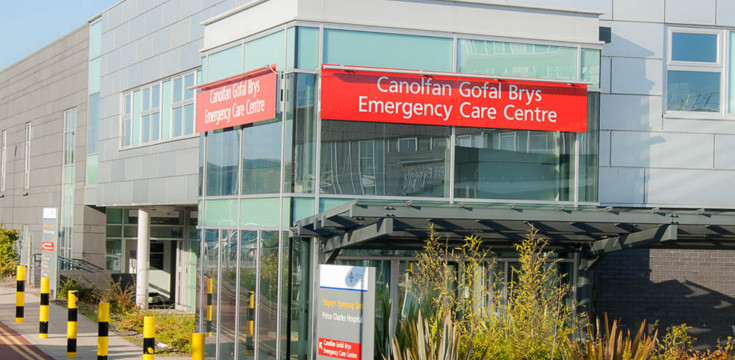Welsh A&E departments “in a better position” compared to last winter

Health Minister, Vaughan Gething (Lab, Cardiff S. & Penarth) updated AMs on Tuesday on how Welsh A&E departments have coped over the traditionally busy winter period.
Positive Impact
By and large, the Minister brought good news:
- The number of hours patients spent waiting for handover from ambulances fell by 30% in December 2018 compared to December 2017.
- Fewer people over the age of 85 were admitted to hospital compared to 2017 and the average length of stay for people admitted as emergencies were the lowest for six years.
- A pilot with the Red Cross supported 14,000 A&E patients and staff, including transport home.
- Performance against the 4-hour A&E waiting time target improved in 7 of 13 hospitals.
While the broad picture was rosy, the Minister was willing to accept not everything has gone as smoothly as he’d like:
“….this winter has also been difficult for services and staff across health and social care. There have been occasions where patients have waited longer for advice, care or treatment than we or health and social care staff would like. Winter stomach bugs such as norovirus place additional strain on our NHS, and since October 2018 there have been 103 gastrointestinal outbreaks in hospitals and care homes across Wales.”
– Health Minister, Vaughan Gething (Lab, Cardiff S. & Penarth)
The Devil’s in the Detail
Shadow Health Minister, Darren Millar AM (Con, Clwyd West) was pleased the figures were heading in the right direction – though that’s the only way they could go considering how bad the situation has been in previous years.
Two hospitals in the north-east – Glan Clwyd and Wrexham Maelor – have the unwanted accolade of some of the worst A&E waiting times ever recorded in Wales. He cited the experiences of constituents who complained of a lack of privacy, respect and basic hygiene standards. He asked a number of questions on flu job uptake and the regional distribution of money.
The Minister confirmed that the north of Wales received the largest share of additional money made available to deal with NHS winter planning. He later acknowledged that performance in the Betsi Cadwaladr board wasn’t where it needed to be.
Helen Mary Jones AM (Plaid, Mid & West Wales) welcomed the figures but wanted more details in order to draw more accurate comparisons with previous winters.
“So, a further question of detail around delayed transfers of care (aka. bed blocking). Again, it’s very pleasing to hear that there has been a reduction, but it would be helpful, from the point of view of scrutiny, to know a reduction from what to what, and again, whether that performance is consistent across the whole of the service or whether, as we might suspect, there are substantial differences.”
– Helen Mary Jones AM
Both Darren and Helen Mary applauded the work with voluntary organisations and both wondered whether pilots could be turned into ongoing commitments. Huw Irranca-Davies AM (Lab, Ogmore) asked a similar question regarding care and repair in Bridgend.
The Minister said, “That depends”:
“When we’re commissioning a service from the third sector, we want to know that the organisation is robust and able to deliver its service. We have key indicators about the service so they understand we’re spending public money wisely, and the third sector don’t take issue with that. They want some certainty about the future, and there’s a limit to how much certainty we can provide.”
– Health Minister, Vaughan Gething
Keep up to date with what is going on in the Senedd via SeneddHome.com
Picture: Cwm Taf LHB
Spotted something? Got a story? Email: [email protected]
Latest News
